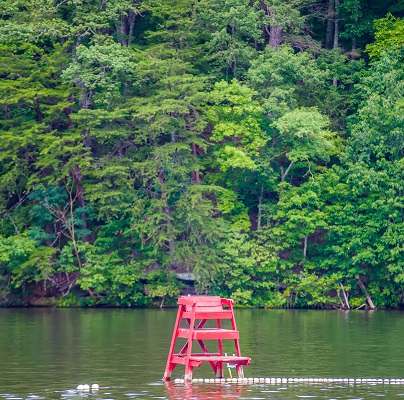Not being required to have CPR training isn’t an excuse for not learning this important lifesaving skill. There is a growing list of professions in Virginia and North Carolina that require CPR training, but far more that don’t. Even if you do not have a CPR requirement at work, you still might be a position where it makes sense to learn CPR depending on your daily activities and the people you interact with on a daily basis.
Those responsible for children, the elderly or anyone not fully capable of taking care of themselves should consider CPR training, as well as anyone in a position that requires them to be around the water, live electrical lines or other dangerous activities on a regular basis.
Jobs that Require CPR Training
 Doctors, nurses, healthcare providers, police, sheriffs, firefighters, rescue personnel and other emergency responders are generally required to maintain an up-to-date CPR certification. Some of the direct medical fields require more advanced CPR courses that include the use of resuscitation equipment and even two-man CPR techniques. Years and years of continual trial and error has led to continued improvements in CPR techniques, so it is important to keep your CPR training current.
Doctors, nurses, healthcare providers, police, sheriffs, firefighters, rescue personnel and other emergency responders are generally required to maintain an up-to-date CPR certification. Some of the direct medical fields require more advanced CPR courses that include the use of resuscitation equipment and even two-man CPR techniques. Years and years of continual trial and error has led to continued improvements in CPR techniques, so it is important to keep your CPR training current.
For an example, in Virginia, a law passed by the General Assembly requires all teachers renewing or obtaining a teaching license to receive training in emergency first aid, CPR and use of AEDs, all of which are offered at the CPR Institute’s Virginia location.
Who Else Needs To Know CPR
Due to the serious operations sometimes performed at dental offices, dentists and dental assistants have CPR requirements. Nursing home employees, daycare staff, lifeguards, babysitters, flight attendants, prison personnel and general office staff at doctors’ offices may be required to obtain CPR certifications depending on particular job duties and company policies. Boy Scout leaders, bus drivers, hunting guides, camp counselors, whitewater guides or other outdoor/adventure related positions should encourage or require CPR and first aid training on at least some basic level.

Companies that have particularly dangerous jobs or positions that put employees at risk should also require CPR training for those that work around the water, live power lines, cable lines, cellphone towers or dangerous machinery. The United States Department of Labor and the Occupational Safety & Health Administration have their own sets of rules and regulations pertaining to safety and CPR training requirements in particular jobs, situations and special industries where medical care might not be readily available, like logging activities.
Take CPR Training for Your Family
Regardless of particular job requirements, anyone with a family should learn CPR, because 85% of cardiac arrests occur at home. If something happens to a loved one, there is nothing worse than not knowing what to do in an emergency situation. At the very least, keep a first aid kit in your home and vehicle and know how to administer basic chest compressions while waiting for emergency responders. This could mean the difference between life and death for your child, parent or spouse, or even for yourself.
Don’t forget to apply chest compressions to the beat of Staying Alive!
Learn More About CPR Training
Emergency response teams aren’t always going to be able to arrive in time. 911 operators sometimes have difficulty identifying a victim’s precise location. When it comes to protecting your life and the lives of those around you, CPR training should be one of the first things you consider. Contact us to learn more about classes available in your area.
Get CPR Training Today!
